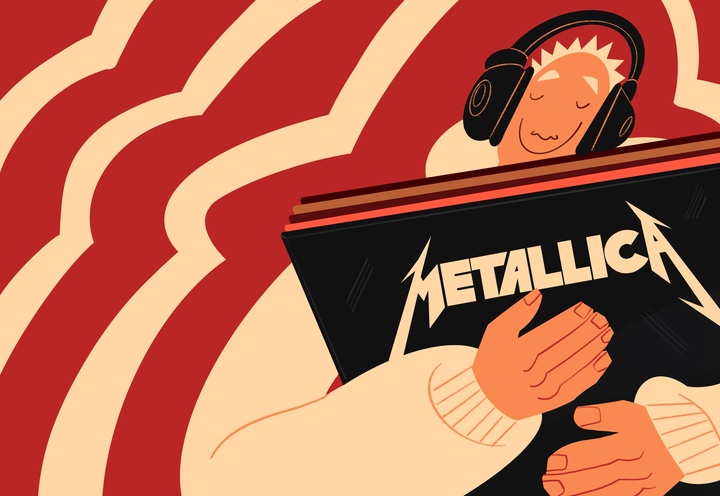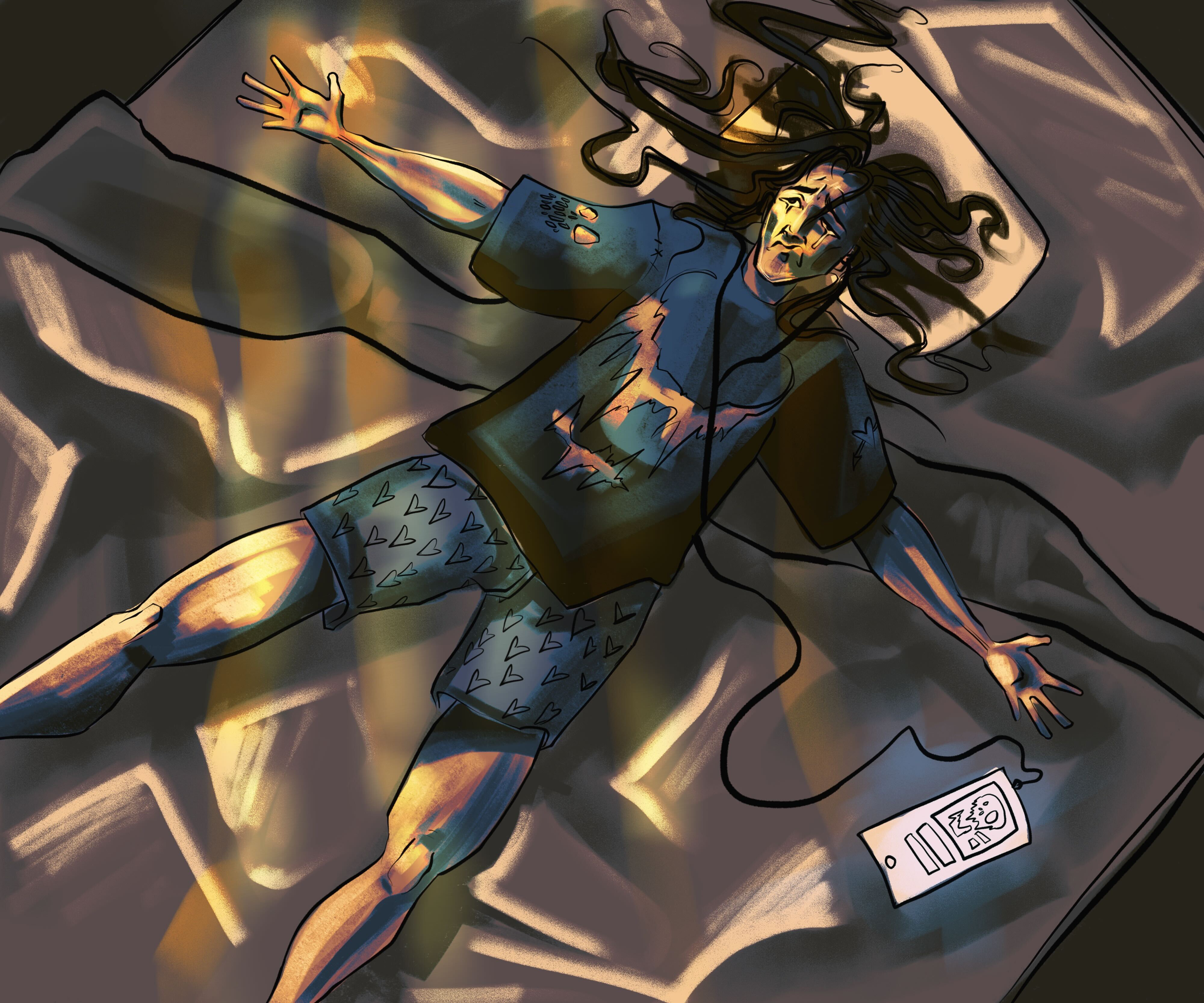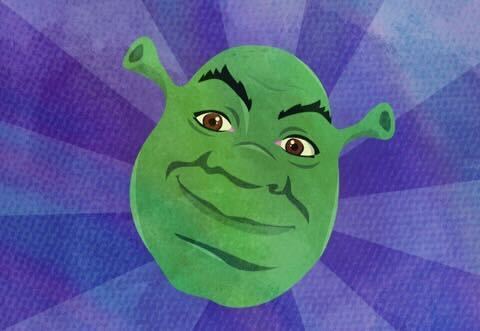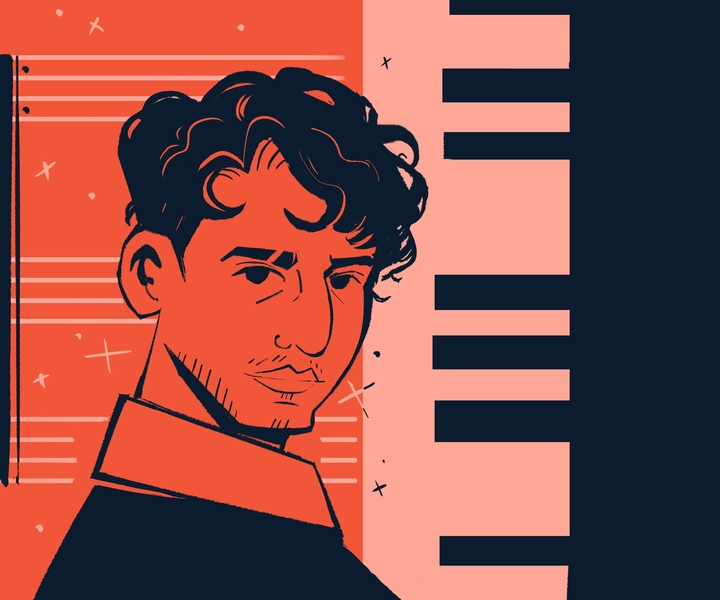Illustration courtesy of Kessy Sambou.
When you’re freshly 16, angry, angsty, and frustrated, trying to understand why no one else understands you, it’s easy to fall into a dangerous pit of “I’m not like everyone else.” However, when you’re too shy to dress like a nonconformist, you listen to music like one. So you dive into this band called Metallica, which, at the time feels like the most nonconformist thing you can do in a community of copy-and-paste teenagers, and find this album called “Ride the Lightning.”
It wasn’t anything like other classic rock bands I was exploring. To me, a newbie, it was shocking and unexpected. The guitars are overdriven and played at the speed of light. Songs like “Escape” and “Creeping Death” are intense and chilling, while “Fade to Black” is melodic and melancholic. It’s as if the album found me, and through the mind-melting intro of “Fight Fire with Fire,” it said to me, “I understand.” From there, I was addicted.
In freshman year of high school, I was a dance competition kid, which meant I was at dance 12 hours a week with competitions on the weekends. Sometimes they’d go for multiple days at a time. I wasn’t exactly the most popular kid on the dance team, in fact, I was quite the opposite. My headphones were a good distraction from the fact. I would sit backstage in my “moon boots,” these puffy shoes you could wear over your dance shoes to protect them. Honestly, I’m not sure what the point of those were.
Anyways, I would sit in the dusty corners of whatever academic building was being used for the competition and sink into my music. Metallica was the perfect noise for those nauseating moments before going on stage. The great thing about those slivers of time was the fact that I knew no one would expect me, the scrawny little kid in the glittery outfit and thick coat of makeup, to be blasting “Ride the Lightning” and “Master of Puppets” before a show. Kirk Hammett’s dizzying, explosive solos distracted from the overstimulating gel sealing my hair down like concrete, the bobby pins stabbing my skull, and costume straps digging into my shoulders.
I remember the first time I heard the chilling, echoey guitar intro for “Welcome Home (Sanitarium)” off of their 1986 smash hit “Master of Puppets.” It was one of those songs you hear for the first time, and then you find yourself unable to listen to any other songs, because you’re so determined to inject your brain with it that you’re stuck playing it over and over again. It’s that sort of tune that tightly holds your hand while you cry. I can’t say I relate to the song on a lyrical level (it’s quite literally the tale of a mental asylum patient), but there was something to the brief moment of common ground between James Hetfield and I when he said, “leave me be.” It felt as if Metallica could feel sad, perhaps it was okay that I did, too.
And when the competitions were over, and whatever drama went down that weekend had ended (in dance, drama is a guarantee), I wanted nothing more but to sink into my mattress for eternity and watch TV. When we still had all the channels on cable, MTV had a side channel called MTV Classic, and every evening they’d air reruns of the “Headbangers Ball.” When the Ball was on I’d put my phone away and travel in time, watching metal music videos and pretending they weren’t reruns at all, that it really was 1988, and that Metallica just released “And Justice For All…”
And I listened to Metallica all throughout the next four years of my high school career. It knocked the dance competition bullies over the head, told me to cut my hair and finally show my face off, soundtracked my prom preparation, and influenced my style in college, where I finally embraced the metalhead I am instead of hiding myself under hoodies.
However, there’s one album that was always with me: “The Black Album.” I recall being in the back seat of my dad’s car, excited because he put on “Enter Sandman,” which was the only Metallica song little Emma knew of. It was spooky and different. Even in a car seat, Metallica was telling me that different was cool, and even though I took a break from my dad’s music throughout my middle school years, the band found me again. And now, at 21, I proudly wear my “metal up your ass” tee shirt in hopes that I’ll attract some fellow metalheads. It’s an achievement, compared to the days where I was too afraid to draw attention with band tee shirts.
Even in my 20s I still sometimes get that pang of feeling misunderstood, and suddenly I’m in my puffy moon boots again hiding in the corner at a dance competition. Whenever that happens, I open Metallica’s discography much like one would “break glass in case of emergency,” and the music is holding my hand again and saying, “I understand.”



